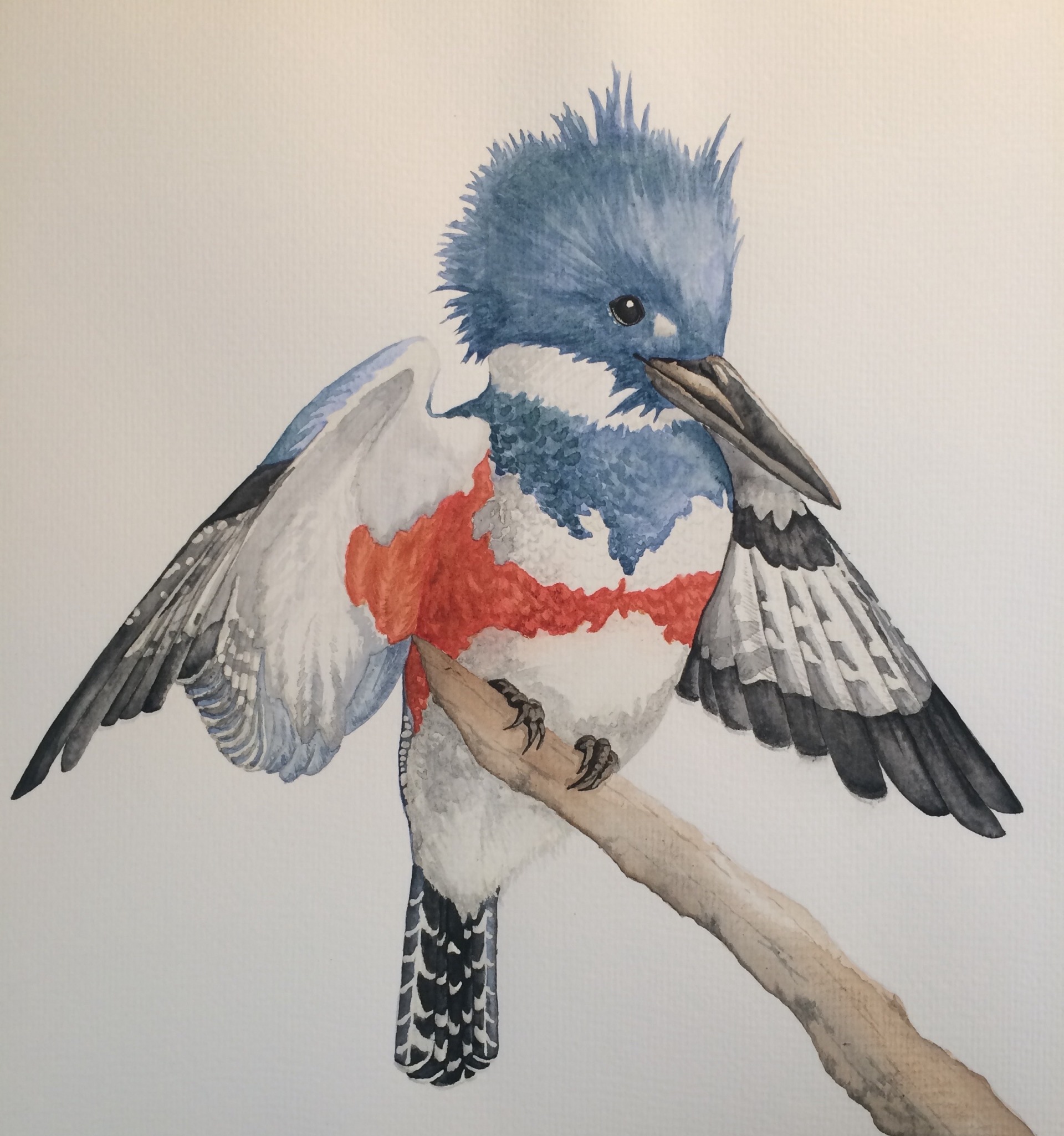These popular topics are heating up. Explore today's most viewed pages.
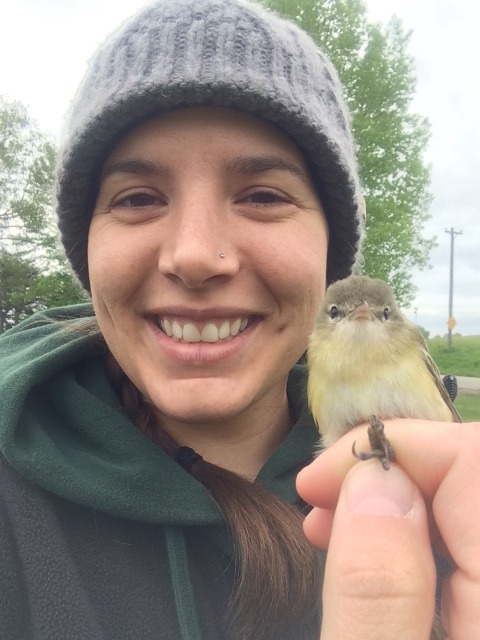
During this season the tower becomes an office for this very important work and the scientist who calls it home for three months is our only full time, paid HawkWatch employee. This year we are so please to welcome back Bethany Thornton for her third season filling this position. We have gotten to know this dedicated biologist over the past three seasons and thought our guests might like to meet her as well. I sat down with Bethany to get the scoop just for you.
My path in pursuit of a career in science has been pretty roundabout. When I was young, I don’t remember having some role model that made me want to be like them when I grew up, I just always knew I needed to be a scientist. Maybe Beakman is as close to an inspiring figure as I can get. I did write the show once and I still have the postcard they sent back stashed away in my childhood keepsakes somewhere. But anyway, science was always on my mind, especially biology. After a very long and odd college career, I graduated from Missouri Western State University with a degree in Wildlife Conservation and Management. I started out as a budding botanist, and I worked for about two years doing various habitat restorations and invasive plant species management projects. While doing that, I was referred to a job doing breeding bird point counts and that’s when the bird bug bit me. Since then it’s been season after season of doing various bird monitoring and research projects. I can safely say at this point I’d like to continue working in bird research and conservation.
You know, I never went into biology or science thinking I had to do something specific. I’ve always just tried to be well rounded in my education and experiences so I could take opportunities as they came up. My goal was to do whatever good I could in whatever position I held, and that would be how I could continually contribute to conservation. I was originally more focused on land management and habitat restoration, because I liked the “big picture” approach they took to conservation. I was really interested in botany and reconstructing native prairies. But I’ve always been involved with birds, either through volunteer work or just birding for my own enjoyment. When that first job opened up for me to work exclusively with birds, I took it without a second thought, and I really haven’t looked back.
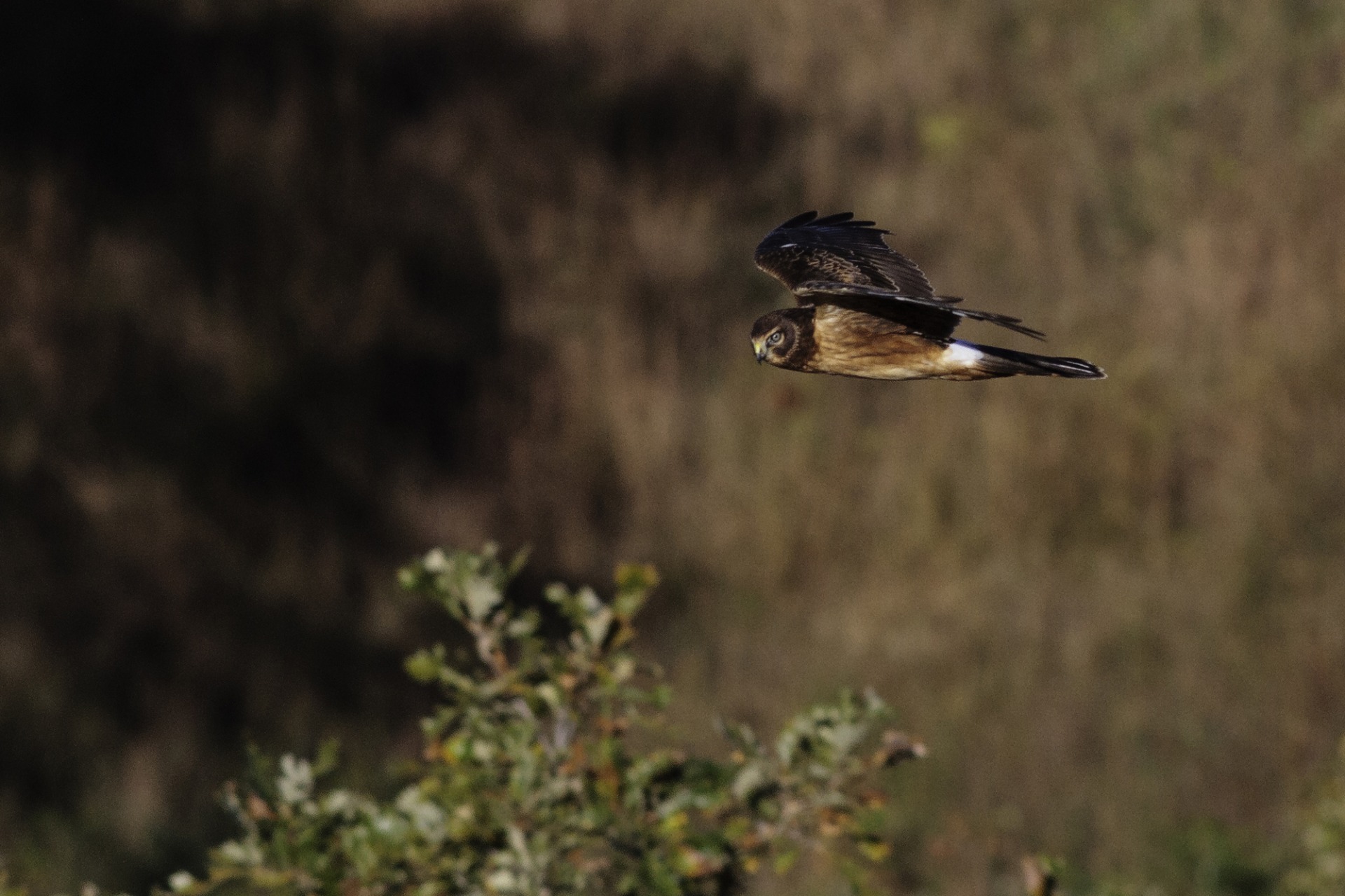
Northern harrier. They are such beautiful raptors with stunning plumage and wonderful, owl-like faces. When they fly they tend to hug the contours of the land. They just make it look so effortless and are really interesting birds. They also can be a little tricky to spot, so when you are scrutinizing a bird at a distance and you see that dihedral and that slim body shape, and then it banks and rewards you with that unmistakable white patch above its tail, it’s just a great sensation.
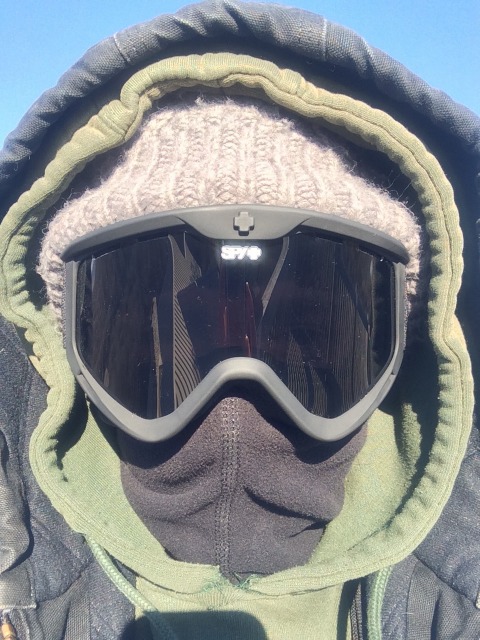
I have worked on a lot of field projects, so this is hard to narrow down. I think my favorite place besides Hitchcock was working in eastern Montana for Intermountain Bird Observatory. That was the first exclusively bird-related job I had, and I can happily blame it for my current obsession with North American birds. Plus, that part of Montana is just beautiful. It’s stunning prairies and sagebrush as far as the eye can see, and in some places you can’t even detect a hint of other humans. It feels very wild and I loved it.
That really depends on the season and location. The constant change in scenery and work is part of what draws me to field jobs. Every day is different. For the Hawkwatch, my schedule is a little more predictable, and my day is mostly spent scanning the skies for those familiar raptor shapes and chatting with visitors about our migrants and just how cool turkey vultures actually are. During other seasons it might be waking up hours before sunrise to listen to the dawn chorus of breeding birds, or setting out mist nets at first light to try to band song birds. It’s always something new. And it always includes abundant amounts of sunscreen and bug spray.
This is one of those questions that I think you’d get a different answer from every person you ask. In my personal experience, I think some people expect to get that cushy, full-time government agency job right after graduation, and then are shocked when they find themselves in very challenging and uncomfortable seasonal or hourly jobs. It’s a highly competitive field and a lot of people looking for conservation biologists want candidates with lots of good experience in addition to their education. I know so many individuals who graduated with degrees in wildlife biology, conservation, and ecology that didn’t like the prospect of doing years of fieldwork, so they quit and pursued other career paths. Also, aiming only for that government job will definitely rob you of some awesome opportunities to work with universities, non-profits, and other conservation organizations that are doing incredible work.
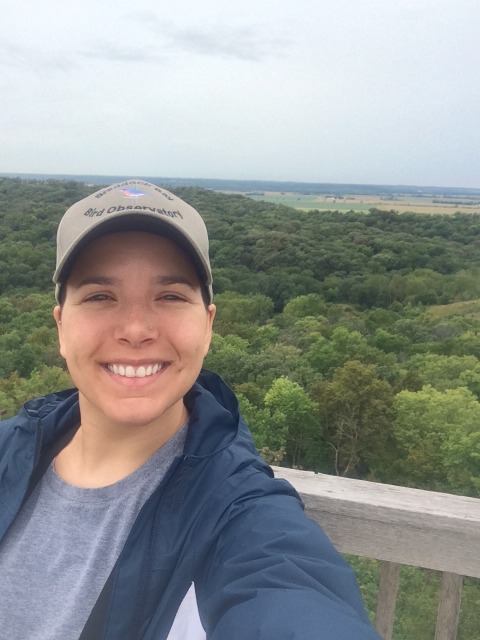
Oh yes. When I was in college, someone once told me that I’d have it easy because everyone is out to hire women to show they have a diverse workforce. When I saw that individual again years later, I had to inform them that being female does not necessarily give you a leg up on the competition. I have been explicitly told by hiring personnel on a number of occasions that I was the most qualified candidate and would have had the job if only I had been male. Other times it was more or less implied. But, to be fair, when it comes to jobs where I’ve been the sole woman on a team I’ve had mostly really good experiences. I worked with a crew of truly excellent men at Pony Express Lake, and I never felt like they singled me out or expected less of me because of my gender. I don’t often have issues with gender when I’m on a job, and when I do I speak up about it. I like to give those situations a chance to be agreeably resolved.
What isn’t fulfilling about this work? I can’t really quantify just how meaningful this work is to me. Whether I’m digging postholes for signs or performing blood draws on potentially contaminated animals or counting birds from a 45-foot tall tower, every day of my job is spent promoting science and conservation. I get to meet and work with passionate people, and we’re all just out here trying to be good stewards of our natural resources and leave the earth a little better than we found it. It's just fantastic. I can’t imagine doing anything else with my life.
I tend to think all of my work is significant, even the little things. Everyone who contributes to conservation is a hero in my book. I suppose there were projects that were more significant to me on a personal level, but that’s mostly because they represented some milestone or achievement to me. For example I finished one field season on my 30th birthday, so I went to the geographic center of the state I was working in and took myself out to dinner, celebrating the successful completion of a decade and of a field season.
Telekinesis. And for the most boring reason, because I think it would be super practical. I could move all those abandoned shopping carts in the far reaches of the parking lot into the cart corral with my mind.
Not in my house.
Also worth noting, Bethany is a talented artist working in a variety of mediums. Check out the original artwork below!
